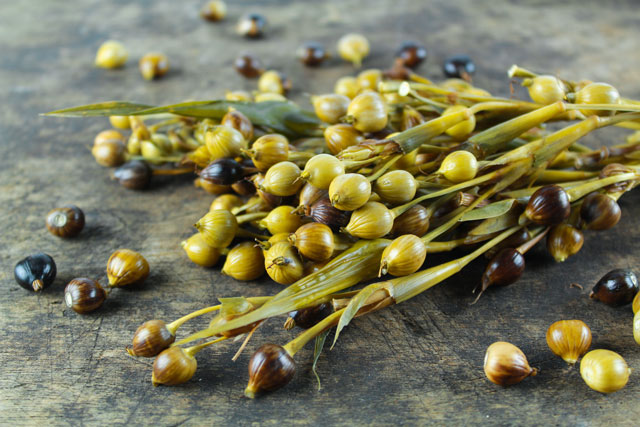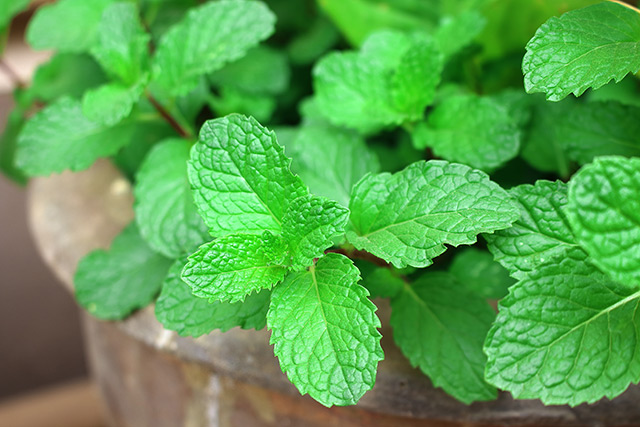Flu symptoms can be eliminated naturally without the need for toxic drugs
11/27/2018 / By Vicki Batts

Battling flu symptoms is never a good time, but conventional medicines often leave much to be desired. Even the “gold standard” of flu medicines, Tamiflu, is said to shorten the duration of illness by one day — at most — and that’s on top of the fact that some 99 percent of viral flu strains are resistant to the drug.
Combined with the litany of side effects, like headaches, nausea and vomiting, it’s no wonder natural remedies reign supreme when it comes to managing cold and flu symptoms. Indeed, home remedies have been offering comfort to cold- and flu-sufferers for centuries, and in many cases, these “old fashioned” cures have modern science now to back them up.
Fighting off the flu, naturally
There is no shortage of natural solutions for warding off sore throats and stuffy noses, but even more importantly, many natural remedies have the added benefit of bolstering your immune system. So not only do they help soothe discomfort, in many case, home remedies can also be used as preventives. Here are some of the top natural remedies for fighting the flu:
Ginger
This warm, spicy root has long been a staple of traditional medicine. Not only can a cup of ginger tea help sooth the upset stomach that so often goes along with a flu, brewing fresh sliced ginger in hot water can help soothe a sore throat and coughs, as well.
Honey
Honey is naturally soothing for sore throats and coughs. As Healthline reports, “In one study, researchers found that giving children 10 grams of honey at bedtime reduced the severity of their cough symptoms. The children reportedly slept more soundly, which also helps reduce cold symptoms.”
However, honey should never be given to children under one year of age. Honey can contain botulism spores, and young children are particularly susceptible to illness.
Echinacea
Echinacea has truly stood the test of time. This herbal medicine is known for supporting the immune system and suppressing viral activity. Scientists believe that echinacea actually binds to white blood cells, helping to spur them into action. Natural Health 365 reports that “herbalists advise taking 5 to 10 drops in a ¼-cup of water, up to 5 times a day.”
Probiotics
Probiotics aren’t just for digestive health anymore. Roughly 80 percent of your immune system resides in your gut; taking a probiotic for immune system support is a common-sense approach to keeping illness at bay, for sure. Probiotics help support the populations of good bacteria in your gut as well, while also making it an inhospitable environment for pathogens. Taking probiotics in winter months is suggested for best protection.
Zinc
Clinical research has shown that zinc gluconate lozenges can help reduce the duration of flu symptoms by an average of three days. Experts often recommend taking one 23-mg lozenge every two hours. But as Natural Health 365 cautions, zinc lozenges should not be taken for more than one week. Zinc overload can cause copper deficiency and weaken your immune system. Zinc is an important nutrient, but should not be taken in excess for this reason.
Vitamin C
Last, but certainly not least, is vitamin C. The king of immune system support, known for its potent antioxidant activity and more, vitamin C is crucial to keeping flu symptoms at bay. Large doses of vitamin C have been shown to reduce inflammation, stimulate antibody activity and to help ward off pathogenic microbes, like the flu virus. Megadoses of vitamin C have also been shown to increase production of interferon, which prevents cells from being overtaken by viruses in the first place.
Research has shown that megadoses of vitamin C – 1,000 mgs hourly for the first six hours and 1,000 mgs three times a day thereafter – can reduce the severity of cold and flu symptoms by up to 85 percent.
There are, of course, many other natural remedies for cold and flu symptoms. Salt water gargles, warm baths, elderberry extract and many other natural solutions are out there. Learn more at NaturalMedicine.news.
Sources for this article include:
Tagged Under: alternative medicine, cold and flu, Flu, Flu Season, flu symptoms, home remedies, infections, influenza, natural antibiotics, natural remedies, prevention, vitamin C



















